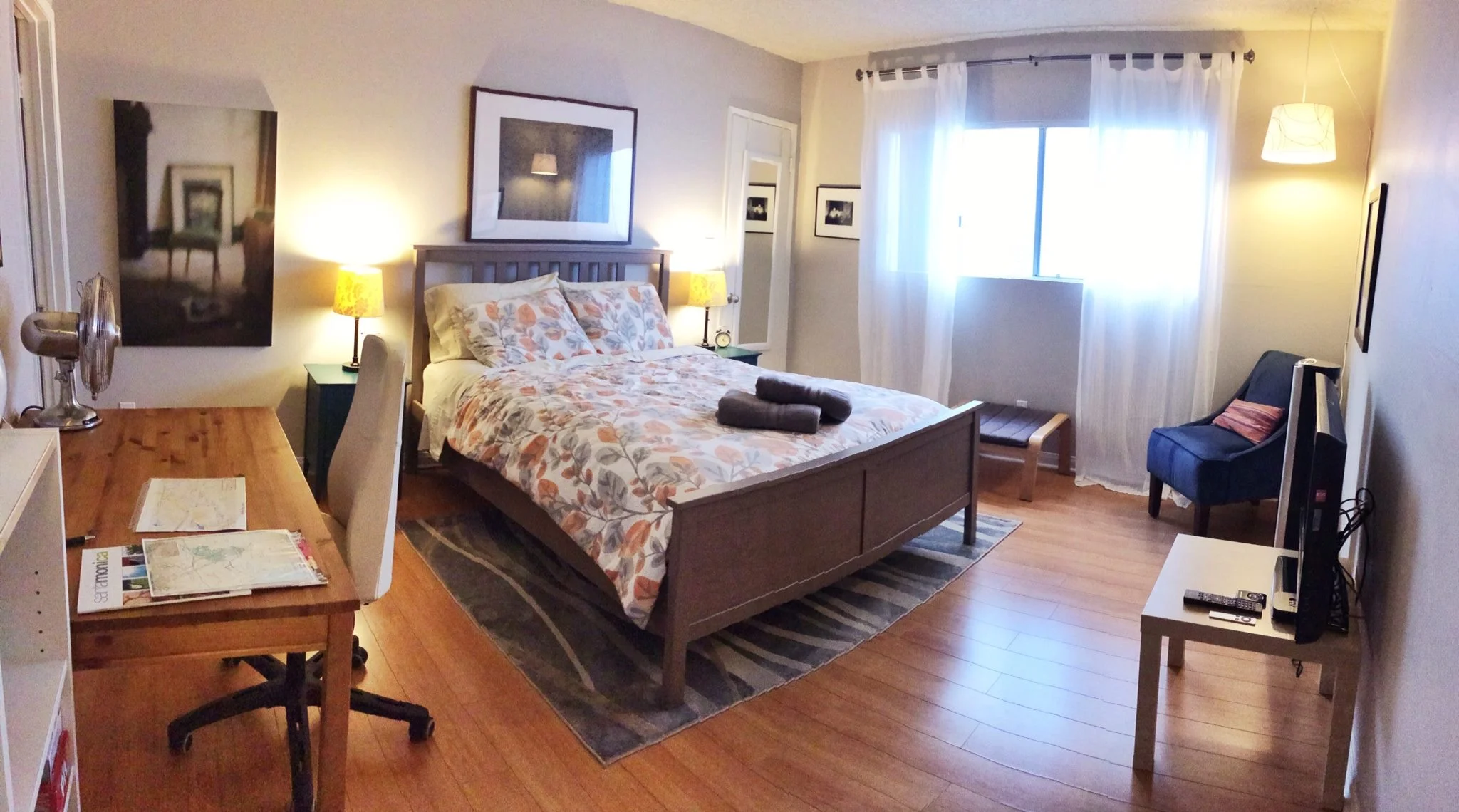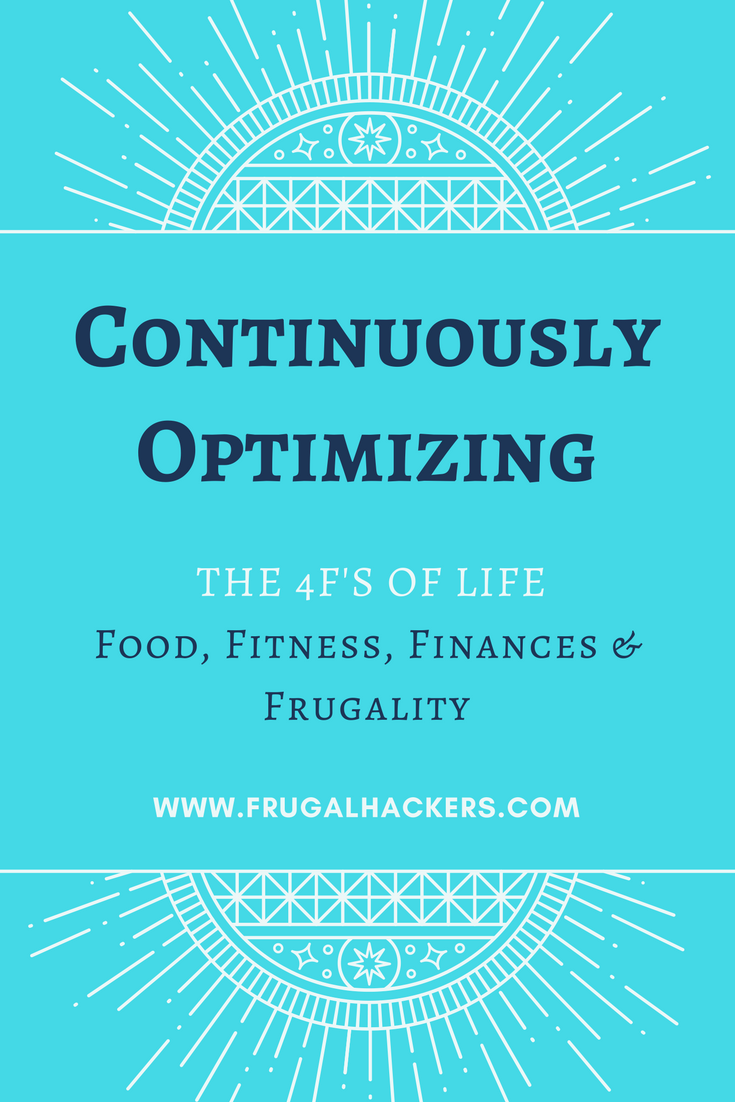This post is Part 4 of the Frugal Travel Series. At Frugal Hackers HQ, we apply many strategies to optimize our travel spend, which happens to be our top spending category in the "discretionary spending" category. Follow along to see how we maximize our enjoyment of vacation days given the constraints on time and money.
Flights and hotels are the biggest expenses on trips. In Part 3 of this Frugal Travel Series, I shared my favorite tips for optimizing flight costs. Once you have your preferred flight dates, be sure to check prices for accommodations between those dates before buying any flight tickets. Hotels can be intimidatingly expensive, especially in high cost cities such as New York, London, and San Francisco. Here are my strategies for maximizing our trip dollars on hotels.
To save on accommodation, you need to have the mindset that all you need when traveling is a safe place to sleep. Everything else is fluff that you can live without.
If there's one point you takeaway from this post, it's that. Now, put your frugal hat on and let's explore some strategies to make the most of your travel budget.
A safe place to sleep at night. Everything else is bonus!
#1 - Don't wait until the last minute
The closer you are to your trip date, the more likely the supply of available accommodation becomes limited. Economics 101 teaches us that in a low supply, high demand situation, prices shoot up through the roof. Especially when traveling to a popular tourist destination, book way in advance (6 months is not crazy).
#2 - Location, Location, Location
Whenever we travel to a brand new city, we make sure to study the local maps to figure out the best location for us. Before booking any accommodations, make a list of all the attractions, neighborhoods and activities that you're planning to check out in the city. Now, map these locations out on Google Maps and see where you'll be spending most of your time. You should also study the local public transit system (coverage, routes, and fares) and see how long it'll take you to get between places. In most high density cities, public transit, local bike share rentals, and walking are the most frugal ways to get around. In these cases, you should optimize for minimizing commute time each day. Vacation time is a precious resource for people not engaging in slow travel, so you don't want to squander 3 hours each day just commuting to/from your hotel.
The marker is where we stayed in Prague. Right in the heart of Old Town, close to public transit.
Conversely, if you're traveling to a place that's mostly car centric and you'll be driving everywhere anyways, it's a good idea to find accommodation a little farther away from the city centers. A fifteen minute drive on the freeway won't take up too much of your time, but could easily save you hundreds of dollars in accommodation costs.
#3 - Traveling with friends? Share a room!
We barely spend time in the hotel/Airbnb room when we travel. We usually share our accommodation with friends we're traveling with, whether it's a weekend getaway to San Diego or a hiking trip to Yosemite National Park. A $100/night room split 4 ways works out to just $25 per person, a 75% savings.
#4 - Skip the amenities
Amazing views, remote controlled curtains, private jacuzzi tub, all for a $300/night price tag. In my experience, once the initial novelty wears off, we pretty much forget that these amenities exist. I mean, how much time can one spend standing at the window enjoying the view before boredom hits? Go out and explore the city! You can get these amenities in any city.
#5 - Airbnb
Airbnb is an online platform for people to host travelers in their homes. You can book an entire house/apartment, a private room, or a shared room. We've used Airbnb on our trips pretty heavily since 2014 and it has worked out amazingly for us. We've stayed in Airbnbs in the US, Canada, Europe, and New Zealand. The best value for money we got was from a newly remodeled studio apartment for $29/night in the heart of Budapest - oh yeah!
My favorite guest experience at an Airbnb was in Lake Taupo, New Zealand. Our host was a 70-year old retired professional golfer who was extremely energetic and enthusiastic about meeting new people. She gave us local tips, helped us plan a bucket list hike at the very last minute (Tongariro Alpine Crossing), and graciously made us a delicious hot, vegetarian breakfast at 4:30AM before we set out on our 20km hike.
If you've never tried staying in an Airbnb, you need to check it out ($40 off for first time users with this link). Now, is there a possibility that your listing is a scam? Sure, there's a non-zero chance. However, Airbnb has a robust review system where the hosts cannot alter any of the ratings they receive. I only book Airbnbs where the host has verified their ID, has multiple reviews (we read all of them!), and has decent photos on the listing.
Based on my fantastic experiences as a guest, I would host people in my home in a heartbeat if it weren't for our building rules disallowing short term rentals. If you're curious about what it's like to host guests in your own home, check out The Frugal Gene's blog posts on her experience as an Airbnb Host.
View from the balcony at our Airbnb in Budapest. Quaint exterior, newly remodeled interior!
Perfectly manicured gardens at our Airbnb house in Cape Foulwind, New Zealand.
#6 - Motels instead of hotels
When we first moved to North America, we stayed at motels all the time when we did family road trips. Years later, I found out from conversations with coworkers that motels have a bad reputation for cleanliness and safety among many people. If you've had these long-held beliefs, it's time to re-evaluate them. Sure, there are some pretty sketchy looking motels in the middle of nowhere next to Interstate highways. But for the most part, the popular chain motels in the US and Canada (Motel 6, Best Western, etc.) have consistent standards on cleanliness and safety. There is zero flash factor, but that's a good thing because you know that you are not wasting any money on frivolities.
#7 - Pack a tent and camp
When you think of tents and campsites, you're probably imagining the wilderness of a beautiful National Park. That was us too, until circumstances forced us to explore urban camping (like, right in the center of a city). Our Airbnb host in Queenstown, New Zealand cancelled our reservation 66 days before our trip. That sounds like enough notice to find another place, right? Wrong! This was New Year's Eve, and everything was sold out within a 100km radius of the city except for a couple places that cost upwards of $400/night. I went into crazy panic mode, and had no idea what we were going to do. I started looking at changing our itinerary to skip this city completely, but it was tricky because we had to get back to Queenstown for a flight. Anyways, a few hours of reading later, I discovered "Holiday Parks" that were located right in the heart of the city.
Holiday Parks in New Zealand are basically what we call campgrounds here in North America. You can book RV sites, regular tent sites, and they even have a limited number of regular hotel rooms sometimes. There's typically bathrooms with hot showers and a kitchen/dining hall area with WiFi. We stayed at this one in Queenstown, and ended up paying just $33/night. Crisis averted! As a bonus, we got to sleep looking up at the stars.
I was initially a little skeptical going into this and packed up our tents and sleeping bags rather anxiously. Well, it turned out to be a fantastic experience. We were a quick 5 - 10 minute walk from all the popular spots in the city. Plus, the facilities were modern and clean, and it felt the same as using the bathroom/showers at a gym.
Fast forward two years, we wanted to visit Jasper and Banff National Parks at what happened to be the busiest time of the year in July 2017. But once again we were completely sheltered from any tourist price gouging. We opted to stay at the campgrounds operated by Parks Canada, and paid a total of $133 for a 5-night trip. In comparison, hotels in the area go for $300+/night at this time of the year, so this was a definite frugal win.
Our campsite in Jasper National Park, Canada









